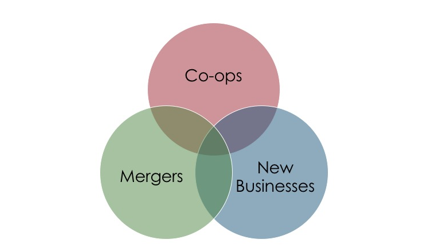Welcome to
How to Establish Profitable PartnershipsA guide to joint ventures that grow your business
Become a FREE member today and earn your FREE course, Dare to Dream plus Discounts, Affiliate opportunities and Free content. . Register Here.
Introduction: Joint Ventures for Small Business Owners and Entrepreneurs
“Businesses once grew by one of two ways; grass roots up, or by acquisition… Today businesses grow through alliances.”
~Peter F. Drucker
Joint ventures allow two or more small business owners or entrepreneurs access to resources and expertise they don’t currently have. These are the alliances referred to in the quote above from famed business management expert Peter Drucker. While joint ventures are employed frequently by the largest corporations in the world, they also work well for solo entrepreneurs, information product sellers, those who teach online courses, and other small business owners.
Think about one of the business goals you have not achieved yet.

Perhaps you want to increase your conversion rate. A small business owner or entrepreneur might also be looking towards a short-term sales boost for an infusion of capital or a longer term boost of sales through acquiring new customers. You might need to generate leads for a new product or service you are launching. These are all common situations where a small business owner can benefit from a smart joint venture agreement.
Unfortunately, statistics show that many JVs fail because they do not deliver the desired results for one or more of the partners in the agreement. Success often depends on how well planned the ventures are, how many people are involved, and how complicated the venture arrangements are.
The failure rate for small business joint ventures is often higher than larger businesses, since entrepreneurs and small business owners don’t have access to the capital that larger companies do. This means the margin for error is much smaller.
What Exactly Is a Joint Venture?
“A joint venture (JV) is a legal organization that takes the form of a
short-term partnership in which the persons jointly undertake a
transaction for mutual profit. Generally each person contributes assets
and shares risks. Like a partnership, joint ventures can involve any type of business transaction and the “persons” involved can be individuals, groups of individuals, companies, or corporations.“
(Cornell University Law School, NY, US)
In layman’s terms, a joint venture is an agreement or partnership between businesses that share resources to achieve specific goals. These partnerships are usually for a specific and shorter time-frame. At the small business level, this type of deal may begin with a handshake agreement. To protect both parties, however, most joint ventures are formalized with a contract, in some cases requiring legal representation.
The worldwide reach of the internet has allowed small business owners and entrepreneurs to set up shop for very little money. However, with limited capital and resources, these businesses frequently hit a plateau. They want to enter new markets, launch a new product line, or improve their customer base, but struggle to do so. This is a common complaint of both online and brick-and-mortar small business owners and entrepreneurs. Approaching another small business owner with a JV proposal makes a lot of sense for both parties.
The “You Have a List, I Have a Product” Online JV
One typical internet joint venture does a really good job of describing the “both sides win” aspect of this type of partnership. An online marketer may have a sizable email list of followers, as well as a good reputation in her field. However, that small businessperson has run out of products and services to offer, and has seen sales trending downward over time.
On the other side of the equation is an information product developer. This entrepreneur is just starting to enter the internet marketing field. He has created a great product, but has no one to sell to. These two business owners are perfectly poised to share their resources to achieve specific business goals.
The internet marketer with a list of followers but no new products to sell could create a new info product, but that takes time and money.
The product developer with no reputation or client base could rent an email list. He could also pay for a one-time email blast from an established online marketer. This takes money which, in this case, he does not have.
By entering a joint venture, these two entrepreneurs help each other. The list owner does not have to spend the time and money required to create a new product. The info product developer does not have to lay out any capital to access a large group of prospects. When these types of partnerships are successful, they often lead to many successful joint ventures between the same two parties in the future.
This illustration of a successful JV conclusion occurs all the time, online and off. And our example is by no means limited to just internet small business owners. Small business owners and entrepreneurs with offline businesses can also benefit from a well-coordinated joint venture.
The Benefits of a Successful Joint Venture
There are a number of ways a small business can benefit from this type of partnership. While your business may have unique goals, the following are a few common advantages of successful JVs for entrepreneurs and small business owners.

- Access to new markets
- A successful product or service launch
- Increasing conversion rates
- Increased sales and profits
- A boost in reputation
- Building a pool of prospects
- Access to better staff, software, hardware, and other resources
- Increased productivity and efficiency
- Improvement in the quality of your products and services
- Establishment of important business connections
These are just some of the benefits you can realize when your joint venture is successful. Whatever business goal you have right now, it can be realized when you partner with the right small business owner.
The 3 Main Types of Joint Ventures
The goals of small business owners are just as diverse as the fields they do business in. That means that joint venture projects can be created any number of ways to be beneficial to all parties. However, for the most part, there are 3 main types of joint ventures applicable to small businesses:

- Co-ops
- New Businesses
- Mergers
The most common JV for small business owners is the co-op. The online JV example mentioned above is this type of agreement. Typically, one business is trying to access a new market or prospect pool. They pay another business a set commission per sale to access the client base that second business owner has already developed a relationship with. This is also known as an affiliate partnership.
Sometimes business owners come together to create an entirely new entity or business. Each of the business owners still runs their respective companies, and they agree to partner on an entirely new business or product.
The most complicated form of joint venture among small business owners is a merger, or business partnership. Two or more businesses become one. This usually drives up profits and lowers costs, since two separate sets of processes, staffs, resources, and systems are not needed. However, it requires careful management of change in all aspects of running the business.
Joint ventures can also be considered either insiders or outsiders. An insider JV allows access to all business processes for all parties in the partnership. This could include information on sales, accounting, staffing, customer retention and other “insider” resources. Any product or service created from this JV is rightfully owned by all of the partners in this agreement.
An outsider joint venture allows each company to remain separate. All internal resources and information are not shared. This is extremely common for online businesses, where two business owners or entrepreneurs cooperate to form an affiliate agreement.
What You’ll Learn in This Course:
Upon completion of this small business JV course you will be able to:
- Define the different types of joint venture partnerships
- Identify areas in your business where a partnership makes sense
- Select the right type of JV to help you achieve your business goals
- Identify appropriate JV partners for a successful win/win relationship
- Pursue and recruit the best partners through effective research and communication strategies
- Draw up a JV agreement, and deliver it to a prospective partner
Expectations
- Refer to the list of JV benefits above. Which of those benefits, or others, can help you achieve your entrepreneurial or small business goals? This helps you identify exactly what you hope to receive from a joint venture project.
- Now that you know the overall purpose of your JV, write down 2 or 3 business goals you want your JV to deliver. You can refer to the goals listed in this introduction, making sure you tailor them to specific and detailed goals relevant to your business needs.
- Look at the 3 different types of joint ventures. Which do you think will be most applicable to your situation, the most effective for helping you reach your goals?
A Word
From Tamara
” In spite of how many times you’ve thought it—or even said out loud—“I’m only human,” Discover Your Superpowers: The Key to Unlocking Your True Potential will forever change the meaning of that phrase, “only human.” Discovering and igniting your dormant superpowers will allow you to live your best life. “
– Tamara Paul

Book Release
Chapter 1
(Manifestation and Trust the Process)
The author’s writing is eloquent yet understandable. I could completely identify with wonder women. This chapter resonated with me. It touched areas in my life as far as living my truth trusting the process speaking life into the things I dreamed for myself. I could identify with wonder woman as I recall my grandmother called me that as a young lady. I now wonder if she saw the powers I possessed.This chapter makes me want to dig deep into my own superpowers and activate them. It’s eye opening and empowering.
Chapter 5 is designed to help the reader discover what binds them, Chapter 5 was a beautiful, transparent and thoughtful account of what could have held the author back in life. This insightful passage was full of purposed and encouraging instruction. A true inspiration for any part of your journey!
Like every good Superhero, they have a companion or sidekick, we offer you two to have by your side. Our hardback daily journal to keep your every thought and the amazing Workbook to give you activities to further your transformation that will assist you in honing your superpowers.

Our superpower is making you a superhero.



